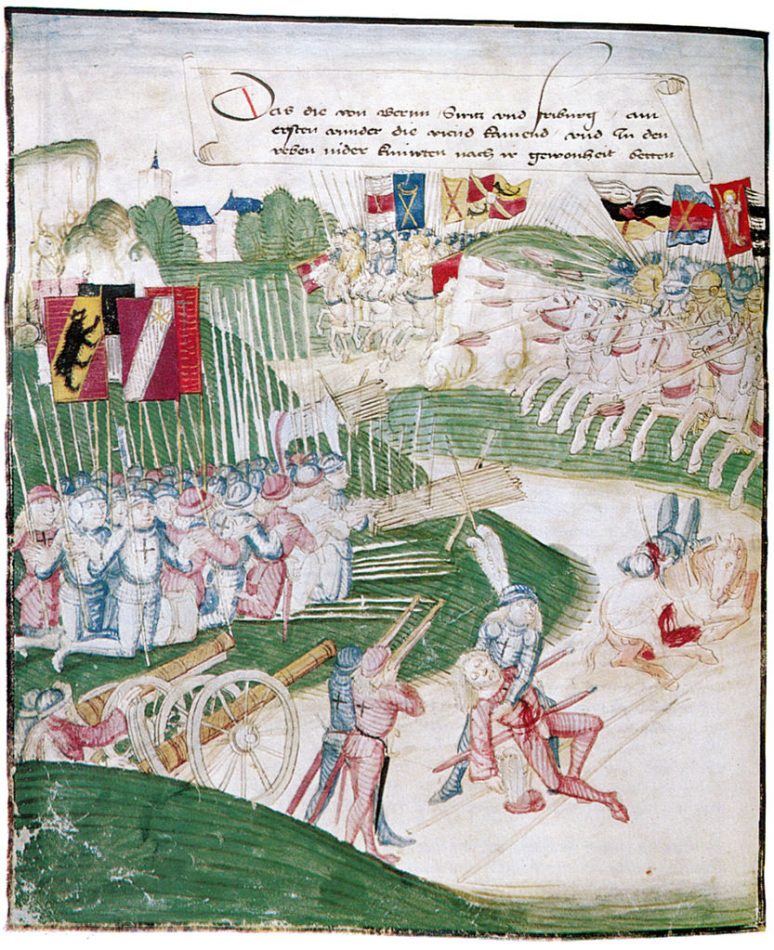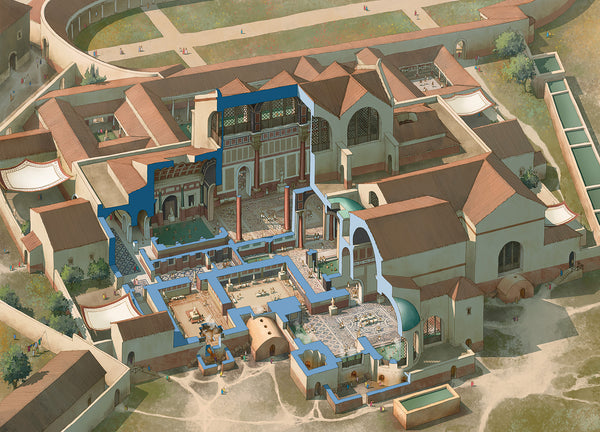The Battle of Grandson in 1476, according to Philippe de Commines
The Memoirs of Philippe de Commines (c. 1447-1511 ) is one of the more interesting accounts from the late Middle Ages. It is a cross between a chronicle of the events surrounding Charles the Bold, Duke of Burgundy, and Louis IX, King of France, and Philippe’s own analysis of these two men (both of whom he served) and their times.
Although he was no longer serving Duke Charles at this time, Philippe de Commines was able to offer an account of the Battle of Grandson in 1476, when the Burgundian ruler went to war against the Swiss.
All hopes of an accommodation being entirely vanished, the Swiss ambassadors returned to acquaint their masters with the Duke of Burgundy's absolute refusal of their propositions, and to make preparations for their defence. The duke marched with his army into the Pays de Vaud (in Savoy), which the Swiss had taken from the Count of Romont, and he took three or four towns belonging to Monsieur de Chasteau-Guyon, which the Swiss had seized upon but defended very ill.
From thence he advanced to besiege a place called Grandson (which also belonged to Monsieur de Chasteau-Guyon), into which they had thrown 700 or 800 of their best troops; and because it was near them, they had resolved to defend it to the last extremity. The duke's army was mightily increased, for he daily received considerable reinforcements out of Lombardy and Savoy; and he entertained strangers rather than his own subjects, of whom he might have formed a sufficient army that would have been more faithful and valiant; but the death of the constable had filled him with strange jealousies of them, and various other imaginations. He had a fine train of artillery, and he lived in great pomp and magnificence in the camp, to show his grandeur and riches to the Italian and German ambassadors who were sent to him; and he had all his valuable jewels, plate, and rich furniture with him; besides, he had great designs upon the duchy of Milan, where he expected to find a considerable party.
It was not many days after the duke's investing Grandson, before the garrison being terrified with his continual battering it with cannon, surrendered at assembled, but they were not very numerous, as several of them have told me (for that country produced not so many soldiers as was imagined, and still fewer than at present, because of late many of them have left their husbandry, and followed the wars), and of their confederate troops there were not many, because they were obliged to hasten at short notice to the relief of their friends in Grandson; and when their army was ready to march, they received advice that the garrison had all been put to the sword.
The Duke of Burgundy, contrary to the opinion of his officers, resolved to advance and meet the enemy at the foot of the mountains, to his great disadvantage; for he was already posted in a place much more proper for an engagement, being fortified on one side with his artillery, and on the other by a lake, so that in all appearance there was no fear of his being injured by the enemy. He had detached a hundred of his archers to secure a certain pass at the entrance of the mountains, and was advancing forward himself, when the Swiss attacked him, while the greatest part of his army was still in the plain. The foremost troops designed to fall back; but the infantry that were behind, supposing they were running away, retreated towards their camp, and some of them behaved themselves handsomely enough; but, in the end, when they arrived in their camp, they wanted courage to make a stand and defend themselves, and they all fled, and the Swiss possessed themselves of their camp, in which were all their artillery, a vast number of tents and pavilions, besides a great deal of valuable plunder, for they saved nothing but their lives. The duke lost all his finest rings, but of men, not above seven men-at-arms; the rest fled, and the duke with them. It may more properly be said of him, "That he lost his honour and his wealth in one day," than it was of King John of France, who, after a brave defence, was taken prisoner at the battle of Poitiers.
You can learn more about the battle in James Blake Wiener’s article, “The Battle of Grandson: Burgundian booty and the rise of the Swiss,” which appears in Medieval Warfare IX:6.
This section is part of The memoirs of Philip de Commines, Lord of Argenton : containing the histories of Louis XI and Charles VIII, King of France and of Charles the Bold, Duke of Burgundy ; to which is added, The scandalous chronicle of the secret history of Louis XI, translated by A. R. Scoble (London: G. Bell & Sons Ltd., 1877). It is available through Archive.org

The Swiss army (left) and the Burgundian army (right) at the battle of Grandson. Illustration by Diebold Schilling the Elder (1483)

